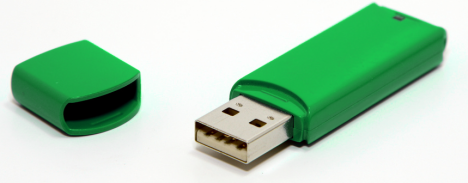
Internet-based applications and file storage, or “cloud computing” as it’s popularly referred to, are fast becoming incredibly functional for most basic tasks on the computer, but there’s still a lot to be said for keeping the trusted essentials with you, especially when you’re traveling to places where internet connectivity and security are unknown quantities. Thankfully, not just web applications are easily portable; with USB flash drives going for peanuts, you can take your whole computer with you in your pocket, just without the hardware. Find any working computer, even one that’s been erased or locked down, and it can become yours with all your programs and files.
What you need
I use a minimum 8GB USB drive. For less than $20, it still allows space not just for the software, but also for storing documents, music, even small movies. Best of all, they’re easily stashed and nearly indestructible.
Give it the boot
Having an entire operating system (OS) on the USB drive is actually remarkably easy to do, though the downside is if you’re a Windows or Mac user, those won’t really fit or function well for this task. Linux, while having a reputation of being an over-technical nerd’s playground, has in many cases become extremely user-friendly with slick graphical interfaces and very simple menus, while being light-weight enough to fit on a small USB drive with room to spare. In most situations, it will even run faster with older computers.
The USB Universal Installer is one of a few free Windows programs that will take the Linux distribution of your choice and install it on a USB stick, but this is the only one I’ve found that provides a persistent partition. What that means in plain terms is, when you boot to the USB drive and make changes or save files, those changes and files will still be there next time. You can customize the environment all you like; bookmarks, wallpaper, install programs, and you get the same thing next time you boot to the disk, regardless of which computer it’s plugged into.
You have your choice of distributions to install, which the installer will even download for you. I prefer Ubuntu, since even if you’ve never used Linux before it’s extremely intuitive, and it simply works with most hardware, no special installation steps or drivers needed.
Camp out
Even if you don’t want to mess around with booting off of the USB drive, you can still have some of the same apps with you using PortableApps, which is designed to run on any Windows machine without needing to install anything. Running on the same USB drive, you can have a web browser with your settings and bookmarks, a media player for movies, Skype for calling home, and to be on the safe side, a virus scanner to keep that drive free of any nasties that tend to lurk on public computers like bed bugs in a hostel bunkhouse.
Lock Up
Just like with anything you carry with you of value, there is always the concern of it getting stolen. A good precaution with a USB drive is to use at least a simple form of encryption with important documents or folders, and to password-protect the OS with your own user account. For a portable encryption tool, I use a program called Toucan.
All told, just a little bit of setup before you go, and you’ll have everything you need in a computer except the computer.
Filed under: Gear | Tagged: computer, drive, portable, thumb, Travel, usb |


Cool post – I had no idea! Looking to do some backpacker style travel again and wondering what to do with my computer – definitely worth looking in to! I am so not a technical person.
Glad you found it informative! Obviously some of it has a bit of a learning curve to it, but I think even beginners will find it pretty painless to get started.